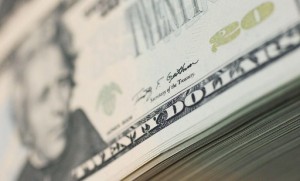Forex reserves climb to $82.09B

The country’s foreign exchange reserves hit a new record high in October, fueled largely by the central bank’s dollar purchases to help temper the appreciation of the peso. MARK WILSON/GETTY IMAGES/AFP
The country’s foreign exchange reserves hit a new record high in October, fueled largely by the central bank’s dollar purchases to help temper the appreciation of the peso.
The gross international reserves (GIR) stood at $82.09 billion as of the end of October, up 8 percent from $75.83 billion a year ago and slightly higher than the previous month’s $82.03 billion.
The latest amount of reserves was enough to pay for 11.9 months’ worth of the country’s imports and 6.6 times the country’s foreign currency denominated debts maturing within the short term.
The Bangko Sentral ng Pilipinas said in a statement that its foreign exchange operations were one of the major reasons why the GIR rose further during the month. Another was its income from investments, which are mainly in US treasuries.
If not for the central bank’s dollar purchases, market players said the peso could have appreciated beyond the 41-to-$1 level.
The BSP said that while its policy was to allow the peso’s value to be largely market determined, it should intervene from time to time to avoid excessive volatility in the market.
The peso, which hovers in the 41-to-a-dollar territory, has risen by about 6 percent since the start of the year. This has elicited complaints from the export industry, which said its growth target for the year would likely be missed due to a difficult environment brought about by anemic global demand and a rising peso.
BSP Governor Amando Tetangco Jr. said the rise of the peso was a natural consequence of the country’s growing economy. With the positive sentiment on the Philippines, he said the country was attracting foreign portfolio investments.
“The peso has been strong in large part due to inflows, which are market reactions to our positive macro fundamentals,” Tetangco said.
Aside from foreign portfolio investments, other drivers of dollar inflows to the country are remittances and foreign investments in the business process outsourcing industry.
The BSP said it would continue to help temper any excessive rise (or fall) in the value of the peso, but added that it would not buy dollars to deliberately weaken the local currency against the greenback.
The BSP said there were adverse consequences on the economy of deliberately weakening the peso. While an appreciation of the peso makes Philippine-made goods more expensive and the export sector less competitive, it helps reduce the cost of imports.
